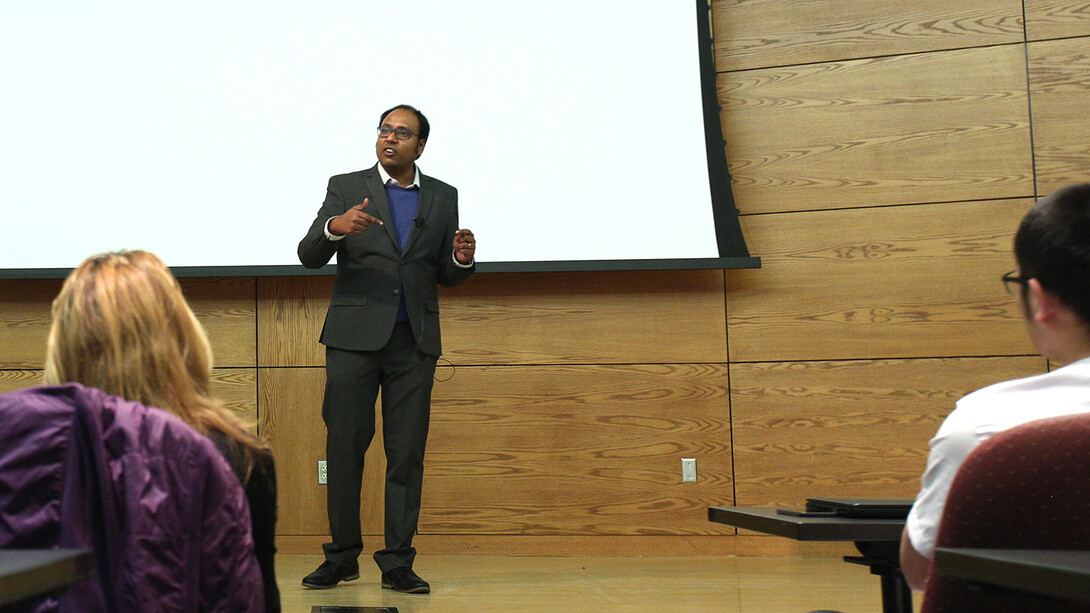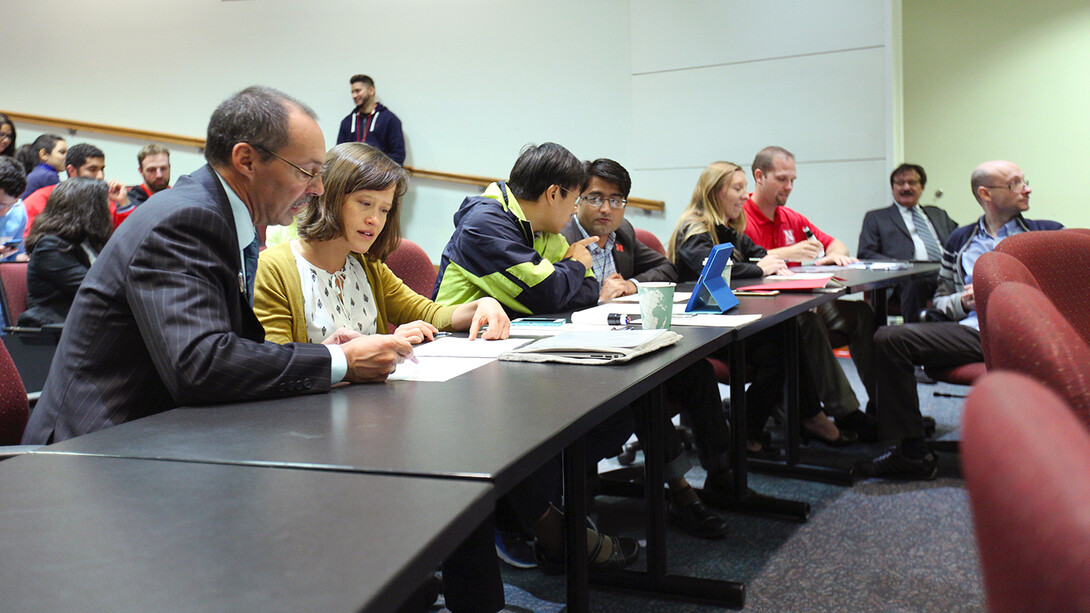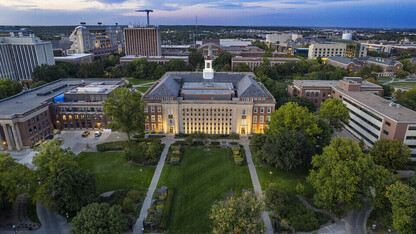
“It’s amazing how nervous you can get for five minutes! I don’t understand it!”
That was Lara Appleby, a postdoctoral researcher in biochemistry, shortly before explaining how science teachers can use emerging software tools to make the learning process more interactive for students.
Appleby and nine other postdocs had assembled in the Nebraska Union Auditorium for a Nov. 2 science slam, part of the Fall Research Fair. Modeled after their poetry counterparts, science slams ask their participants to communicate their research in whatever way they see fit.
The few guidelines are simple: Make it accessible and, if you can, entertaining. And whatever you do, make it short.
Neal Bryan, associate director of postdoctoral development and graduate studies, drew laughter while explaining what would befall those who breached the strict time limit: “After the five-second warning, we cut your mic, the trapdoor opens, and the alligators get lunch.”
Appleby did not test Bryan’s word, but she did overcome her nerves, winning one of the competition’s top three spots as judged by those in the audience. That audience received a rubric of 15 criteria – seven for speaking style and delivery, eight for content – that accounted for 100 total points. After listening to each five-minute presentation, small groups of audience members would tally their scores, scribble them on laminated sheets, and hold them aloft so that a volunteer at the back of the room could record them.
Iryna Bohovych of biochemistry and Chris Bach of athletics joined Appleby on the podium, each winning a $500 travel grant. (The other seven postdocs took home $150 apiece.) Collectively, the postdocs covered research that spanned the development of life-saving roadside barriers, the use of farmer data to increase soybean yields, the design of more efficient solar cells, and a technique for taking snapshots of molecular dynamics.
Rick Lombardo, director of postdoctoral development and graduate studies, said experiences like the science slam should pay dividends that go well beyond travel grants.
“It’s a way of helping them understand how to present their research to lay audiences,” Lombardo said. “This isn’t like going to a conference and giving a presentation. You can’t be up there trying to impress or act smart. The purpose is to communicate what it is you do in simple terms to people who want to learn about (it).
“This is our inaugural event, and we weren’t sure how it was going to go,” he said. “We’re really pleased by the turnout … and all the participants who were willing to spend their time and energy putting something like this together. I think they all did an excellent job.”
Sanjay Antony Babu, who chairs the Postdoctoral Advisory Council that coordinated the science slam, led off the event with a presentation titled “Party Like a Bacterium!” Like most of his fellow postdocs, he had never taken part in a science slam before. But after it was over, he was glad he did.
“I always wanted to participate in something like this,” Babu said. “To really put my work in general terms (seemed) very simple, but when I was putting it in the script, I realized, ‘Wow, this is difficult.’ And another (benefit) that comes from something like this is that I can learn what the other postdocs are doing.”
Bryan closed the event by applauding the postdocs for their willingness to venture outside comfort zones while honing their communication skills.
“We were ecstatic to have such a large collection of disciplines … that we were able to showcase at this event,” Bryan said. “Because beyond the experience that the postdocs (get) by distilling their research down into a little nugget that they can share in five minutes, we also want to do this to highlight the incredible research the postdocs do on this campus.”








